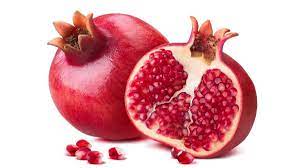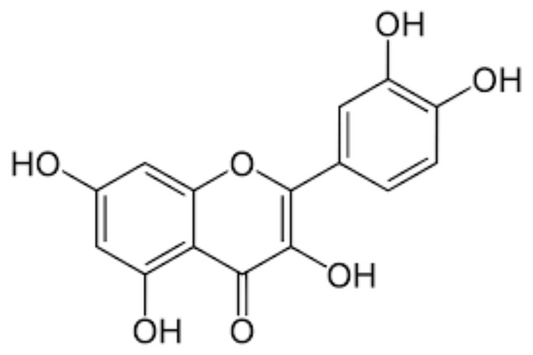Power Up Your Anti-Aging Routine with Vitamin C
Vitamin C, also known as ascorbic acid, is a water-soluble vitamin that is essential for human health. It has numerous functions in the body, including being a powerful antioxidant and immune booster. In addition, vitamin C plays an important role in the production of collagen, which is necessary for the health and maintenance of skin, bones, and other tissues. As we age, our bodies produce less collagen, which can lead to sagging skin and wrinkles. Therefore, ensuring adequate intake of vitamin C can play an important role in anti-aging.1
One of the most well-known roles of vitamin C is its ability to fight off infections and boost the immune system. It acts as an antioxidant by neutralizing harmful free radicals that can damage cells and cause inflammation. Free radicals can also contribute to the aging process by damaging collagen and elastin fibers in the skin, leading to wrinkles and sagging skin. Vitamin C helps to protect against this damage, which can help slow down the aging process.2,3
Another key role of vitamin C is in the production of collagen. Collagen is a structural protein found throughout the body, but it is most abundant in the skin, bones, and connective tissues. Collagen provides strength and elasticity to these tissues, which helps to keep them healthy and functioning properly. As we age, the production of collagen decreases, which can lead to a loss of skin elasticity and the formation of wrinkles. Vitamin C plays a crucial role in the synthesis of collagen, which means that adequate intake of vitamin C is necessary for healthy skin and connective tissues.1
Vitamin C has also been shown to have anti-inflammatory effects, which can help to reduce the risk of chronic diseases that are associated with inflammation, such as heart disease and cancer. Inflammation is a natural response of the immune system, but chronic inflammation can damage cells and tissues over time, contributing to the aging process. Vitamin C helps to reduce inflammation by neutralizing free radicals and inhibiting the production of inflammatory cytokines.4,5
In addition to its anti-aging properties, vitamin C has many other health benefits. For example, it has been shown to reduce the risk of heart disease by lowering blood pressure and improving blood lipid levels in certain people.6,7 For example, a study looked at whether taking vitamin C supplements can lower blood pressure. The researchers looked at 29 clinical trials with a total of 1,400 people, where some participants took vitamin C supplements and others didn't. The average dose was 500 mg per day and the average trial length was 8 weeks. The results showed that vitamin C supplements lowered systolic blood pressure (the top number) by about 4 points and diastolic blood pressure (the bottom number) by about 1.5 points. These effects were more pronounced in people who already had high blood pressure.6
Vitamin C may also reduce the risk of certain types of cancer.8 Vitamin C is also important for the absorption of iron from plant-based foods, which is essential for the production of red blood cells and the prevention of anemia.
The recommended daily intake of vitamin C for adults is 75-90 mg, although higher doses may be necessary for certain individuals, such as smokers and those with certain medical conditions. Foods that are high in vitamin C include citrus fruits, berries, kiwi fruit, mangoes, papayas, broccoli, red and green peppers, and tomatoes.
In conclusion, vitamin C plays an important role in anti-aging by protecting against free radical damage, promoting the production of collagen, and reducing inflammation. Adequate intake of vitamin C is essential for healthy skin and connective tissues, as well as for a strong immune system and overall health. Incorporating vitamin C-rich foods into your diet, such as citrus fruits and vegetables, can help to ensure that you are getting enough of this important nutrient.
References:
- DePhillipo NN, Aman ZS, Kennedy MI, Begley JP, Moatshe G, LaPrade RF. Efficacy of vitamin C supplementation on collagen synthesis and oxidative stress after musculoskeletal injuries: a systematic review. Orthopaedic journal of sports medicine. 2018 Oct 19;6(10):2325967118804544.
- Padayatty SJ, Katz A, Wang Y, Eck P, Kwon O, Lee JH, Chen S, Corpe C, Dutta A, Dutta SK, Levine M. Vitamin C as an antioxidant: evaluation of its role in disease prevention. Journal of the American college of Nutrition. 2003 Feb 1;22(1):18-35.
- Carr AC, Maggini S. Vitamin C and immune function. Nutrients. 2017 Nov 3;9(11):1211.
- Yussif NM, Abdul Aziz MA, Abdel Rahman AR. Evaluation of the anti-inflammatory effect of locally delivered vitamin C in the treatment of persistent gingival inflammation: clinical and histopathological study. Journal of nutrition and metabolism. 2016 Dec 5;2016.
- Gawron-Skarbek A, Guligowska A, Prymont-Przymińska A, Nowak D, Kostka T. The Anti-Inflammatory and Antioxidant Impact of Dietary Fatty Acids in Cardiovascular Protection in Older Adults May Be Related to Vitamin C Intake. Antioxidants. 2023 Jan 25;12(2):267.
- Juraschek SP, Guallar E, Appel LJ, Miller III ER. Effects of vitamin C supplementation on blood pressure: a meta-analysis of randomized controlled trials. The American journal of clinical nutrition. 2012 May 1;95(5):1079-88.
- Ashor AW, Siervo M, van der Velde F, Willis ND, Mathers JC. Systematic review and meta-analysis of randomised controlled trials testing the effects of vitamin C supplementation on blood lipids. Clinical Nutrition. 2016 Jun 1;35(3):626-37.
- Villagran M, Ferreira J, Martorell M, Mardones L. The role of vitamin C in cancer prevention and therapy: a literature review. Antioxidants. 2021 Nov 26;10(12):1894.




